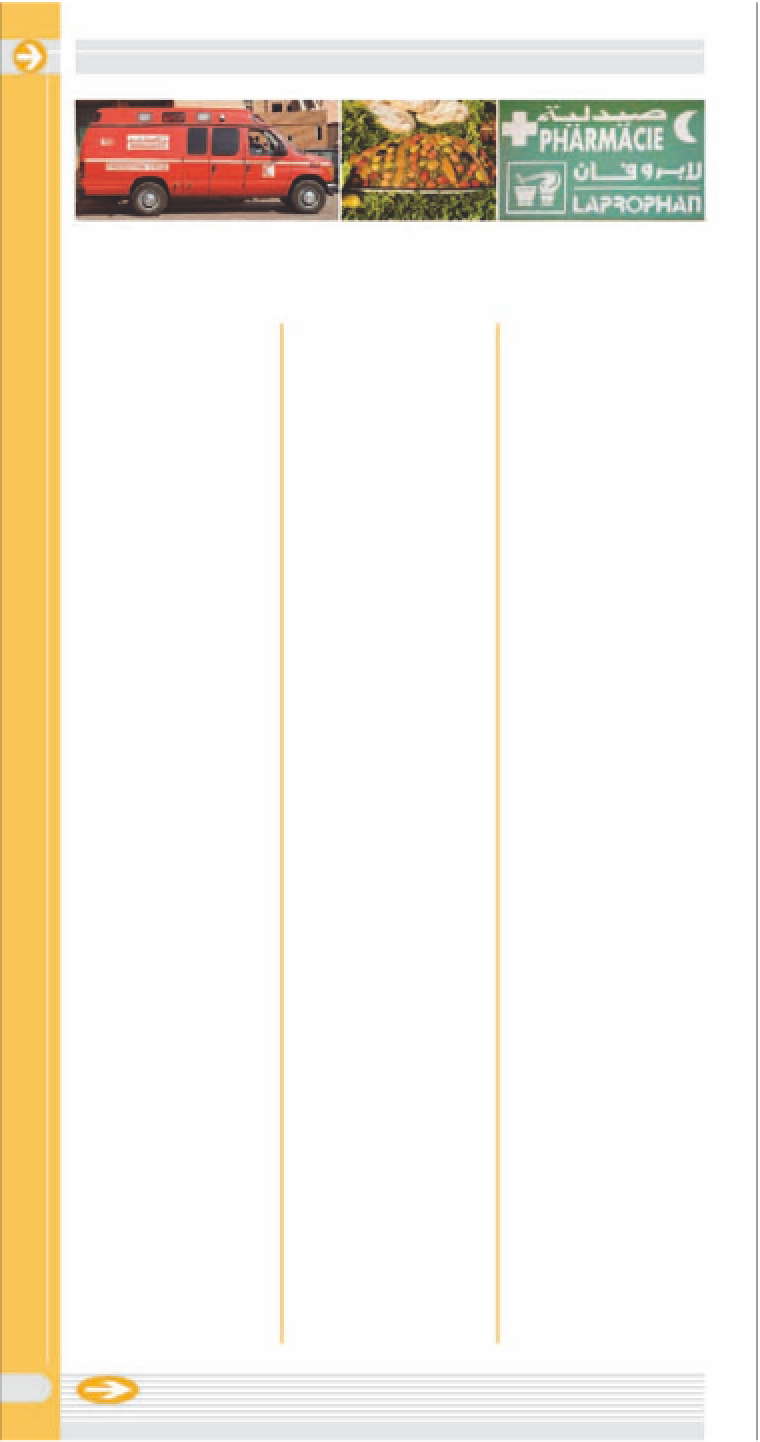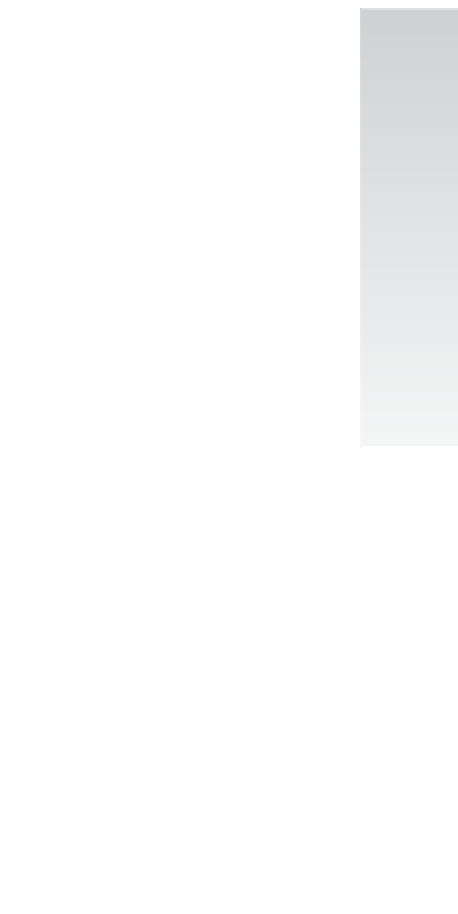Travel Reference
In-Depth Information
Left
An ambulance
Centre
Food stall at Jemaa El Fna
Right
Pharmacy sign
Security and Health
!
Vaccinations and
the best treatment. At all
costs, avoid the under-
funded public hospitals.
%
Pharmacies
are bitten, seek medical
attention immediately.
other precautions
No vaccinations are
required for visitors
entering Morocco, except
for those coming from a
country where yellow
fever exists. However,
vaccinations against
hepatitis A and B and
typhoid are advised. Be
sure to pack a small first-
aid kit. To prevent
sunstroke wear a hat,
use a sunblock with a
high UV-protection factor
and drink lots of water.
@
Personal safety
(
Police
In case of problems,
try the tourist police first
(Brigade Touristique; 0524
38 46 01) at Sidi Mimoun,
to the north of Jemaa El
Fna (not to be confused
with the Judicial Police to
the east of Jemaa El
Fna). The main police
station is on Rue Oued El
Makhazine near Jnane El
Harti in the New City.
Pharmacies are
denoted by a green
crescent sign and have
well-informed staff, who
often speak English.
British proprietary drugs
may not be available.
^
Doctors and
dentists
If the pharmacist cannot
help, there are several
good doctors and dent-
ists with well-equipped
surgeries. All speak
French, but a handful also
converse in English. Your
hotel or riad should have
contact details. Other-
wise, there is always the
Polyclinique du Sud.
)
Your consulate
Only the French have
a consulate in Marrakech.
The main UK and US
diplomatic offices are in
the Moroccan capital,
Rabat. In the case of an
extreme emergency,
there is a Marrakech-
based UK honorary
consul in the New City.
Violence is rare,
though instances of bag
snatching and other such
opportunistic crimes have
been on the rise with the
influx of rich foreigners.
Be particularly careful
when walking through a
quiet medina late in the
evening. Pickpockets are
also common in the
souks and on Jemaa El
Fna, so be vigilant.
&
Animal dangers
Morocco doesn't
have particularly harmful
insects, but scorpions
and snakes are common
in the countryside. If you
are somewhere in the
Atlas Mountains, always
check your clothing
before getting dressed.
Carry some repellent to
combat the abundant
mosquitoes in desert
oasis areas.
*
Serious illness
Directory
Polyclinique du Sud
• Map B4 • 2 rue de
Yougoslavie • 0524 44
79 99 • Open 24hrs
Pharmacie Centrale
• Map B5 • 166 ave
Mohammed V, Guéliz
• 0524 43 01 58
Pharmacie du
Progrès
• Map J3 • Jemaa El
Fna • 0524 44 25 63
British Honorary
Consul
• Map B4 • 55 blvd
Mhmd Zerktouni, Gué-
liz • 0524 43 60 78/
42 08 46
£
Drinking water
and food safety
Drink bottled mineral
water and avoid salads
and fruit juice. Don't add
ice to your drinks.
Approach street food with
caution, though the food
at the stalls on Jemaa El
Fna is usually safe.
$
Emergencies
Being careful about
what you eat should
prevent any serious
illness, but in case of
persistent diarrhoea,
consult a doctor without
delay. Stray dogs may
carry rabies and if you
In the case of an
emergency don't wait for
an ambulance: flag a taxi
and go to the Polyclinique
du Sud in the New City,
a private hospital with
108
The US Embassy, 0537 63 33 33, and UK Embassy, 0537 76 22 65,
are both in Rabat. The US Consulate, 0522 26 45 50, is in Casablanca.




































